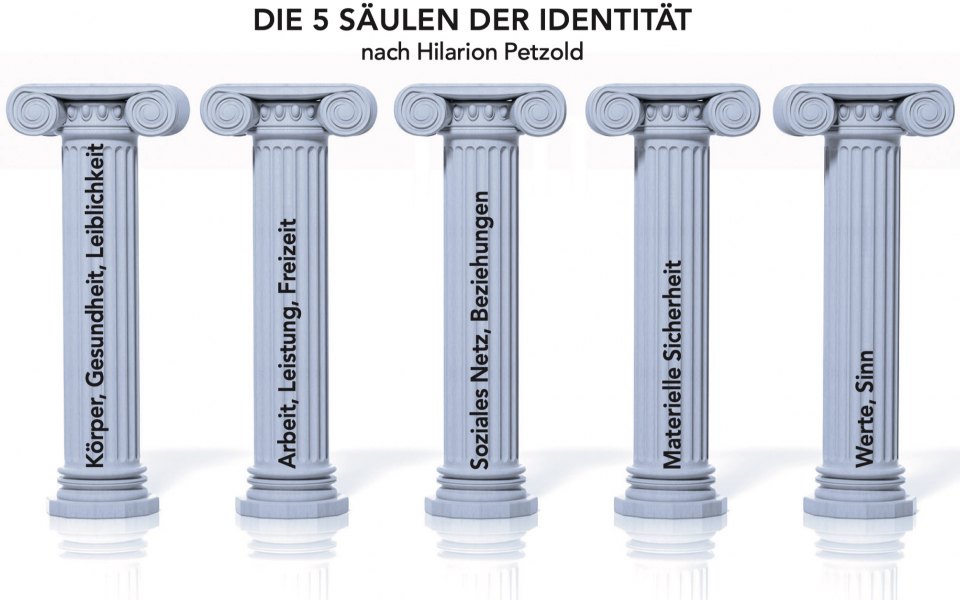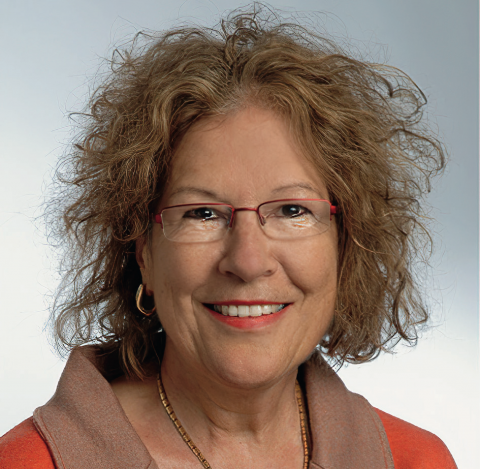Who or what helps in a crisis?
The virus is a generalist, it does not only attack our body and destroys it in extreme cases. The consequences of the infection and its control - fear, social distancing, suffering, death, economic and social hardship - also affect the psyche. Iris Schulz asked the psychotherapist Kathrin Müller Mäder how she tries to cope with the exceptional situation with her clients.
Interview: Iris Schulz
Iris Schulz: How are you currently in contact with your clients?
Kathrin Müller Mäder: The appointments take place regularly - now as telephone appointments. I have had good experience with them, a certain intimacy develops on the phone as well.
What role does the current "extraordinary situation" play?
The conversations often begin with the topic of the "corona situation". What is new is that clients often first ask me about my condition and only then start to talk about their personal problems. They are aware that we are all in a similar situation. And indeed, we are all confronted with a completely new situation for which we could not prepare ourselves. Such a sudden change triggers an instability, a crisis, in almost everybody, which can vary in size, depending on how people are affected.
So the degree to which one is affected by Covid-19 can be quite different?
Yes, we are all afraid of infection and serious illness. But for many people, there are additional burdens. Three examples:
1. A nurse, who now works a lot of overtime because of corona, is also exposed to an increased risk of infection every day.
2. The economic situation can leave a family in great uncertainty and existential fear: Working short hours, fear of financial hardship or even the threat of losing one's job can be a burden.
3. A single pensioner can be depressed because loneliness and the feeling of meaninglessness overwhelm him.
The corona situation can also be a reinforcer of an already existing weak identity; for example, a tendency to withdraw can now turn into social isolation. I would therefore also like to distinguish in the recommendations between those who are strongly affected and those who are less strongly affected.
How do you evaluate the type and the degree of affliction?
Basically, the current situation, the state of health and the stresses and strains are covered in a conversation. Using the model of the "5 pillars of identity" by Hilarion Petzold (see graphic) is an additional possibility. This model is an evidence-based instrument for recording current stability and self-esteem. In therapy, I can use a drawing of the pillars to get a relatively quick overview of the current life situation and the critical areas. For this purpose, the individual pillars are painted on an A3 sheet of paper. In column 1 (physicality, health, body) I include physical and mental health, as well as sexuality and the "feeling of attractiveness" in the sense of a harmonious appearance. Pillar 5 (values, meaning) also includes one's worldview and enduring political attitudes.
If more than two pillars - in the sense of supporting identity pillars - are changing or weakened, it can be assumed that a person feels imbalanced and is in crisis.
An example: A waitress who has been unemployed for three months no longer experiences that her performance is appreciated. In addition, she now has a lower income despite unemployment benefit, which reduces her financial security. The social network that she had built up at her workplace was largely lost when she was laid off. Due to these strains she now has sleep disorders which are a great burden for her. She is thus impaired in four out of five pillars of her identity and is now in a critical phase of her life.
Keyword resilience - what counteracts the instability?
Everyone has different abilities and experiences in dealing with the emotions of fear and anxiety. Someone who has already survived various critical phases of life is usually more resilient to a severe crisis in a new stressful situation. He can adapt and absorb more quickly because he already knows strategies for self-help. He believes in his self-efficacy and has the ability to activate his resources.
It is therefore strengthening in the long term to get involved with the questions and emotions that arise in times of crisis and then develop strategies to deal with the uncertainty. Repressing or, for example, numbing with addictive substances does not bring any profit for later.
What helps concretely to activate one's own resources?
It is important to be aware of one's own condition. Am I depressed and powerless? Or tense due to fear of infection or job loss? By the way, the 5-pillar model is also a good way to find out for yourself whether you are in a crisis.
It helps to remember your own resources and past crises: How did I tackle this situation before? With whom could I speak well? Which activities did I enjoy?
Here are a few examples: In the corona situation with lockdown and quarantine it can be good to have a fixed daily structure. When do I work? Do I want to read a book as well? Do I want to go for a walk every day? Dress nicely despite my home office? Do I want to do something good for myself every day? Where do I get which information about the illness and the general situation? Do I want to limit my media consumption? How do I recognize fake news?
Are there recommendations for reducing worry and fear?
Research results on the topic of "Reducing anxiety when the level of anxiety is increased" (recognisable by sleep disorders, tightness in the chest area, anxiety, stomach pain, shortness of breath etc.) show that the following measures help:
Distraction: Not concentrating on the unpleasant feelings in the body, but distracting oneself. Whether with a magazine, a soap opera or something sophisticated is irrelevant!
Physical relaxation: Through relaxed muscles we signal the brain that there is no danger. When we relax through autogenic training, yoga or running, the level of anxiety also decreases. Conscious, deep breathing expands the chest and thus counteracts the fear.
Interrupting "disaster thoughts" or transforming them into realistic ones: By this I do not mean a simple "I'm getting better and better every day", but a targeted correction of anxious thoughts towards reality. An example: If I think that I am sure to be among those who are infected and die from it, it helps to read the real statistics and to incorporate a realistic probability into my attitude. Here it can also help to exchange ideas with a person who has already internalized this adequate view. Or to seek professional help via therapy.
It is important to know that although fear can be very unpleasant, it is not "fatal". The body is even prepared for the panic attack, and after about an hour the unpleasant state that has developed under adrenaline subsides again.
Can the current situation also be used for positive things?
Yes, of course. Especially those who are less strongly affected can also use the "crisis as an opportunity" during these quarantine weeks, for example for new, creative projects or long neglected things. The list is unlimited. Just one example: They could review their living will and deal with the question of dying and death.
Do rituals also help against fear?
Yes, definitely. For religious people, for example, praying and the idea of being protected by God helps to reduce fear.
Freethinkers are more likely to resort to regular social contacts via media and worldly resources (making music daily, relaxing etc.). They have to develop their own calming strategies for dealing with their fears.
What promotes adaptability?
The attitude "don't avoid and wait, but dare and tackle things" strengthens the experience of being self-effective. You feel pride in your own performance and this strengthens your self-confidence. Personal responsibility and performance then take the place of delegating one's personal destiny to a superior power. In this sense it can be assumed that people who are not religiously inclined more often experience self-efficacy and are more self-confident than religious people. They take their life (and their death) into their own hands and learn to adapt in crises based on their own experiences.
Kathrin Müller Mäder is a specialized psychologist for psychotherapy FSP in Zurich and a member of Freethinkers Switzerland. She has been working for over 30 years in the field of basic psychotherapeutic care for the population, most frequently with people suffering from depression, anxiety, eating disorders or personality disorders.
kathrinmueller.ch


